Your
Destiny Revealed in an Unlikely Place
Each of us is here on earth for a purpose. The purpose is revealed
by what we like or love or care about.
Each of us should be, not just excused, but applauded for thinking
our purpose/passion is the most important thing on earth. Without
that opinion, it's difficult to maintain the pursuit.
I don't know about your passion, but I know children's books are
central to mine. And I am familiar with the
polite-but-condescending nods I get when I mention this. For many
people, children's books are to be put away and, more likely than
not, thrown away, when the child goes to high school, certainly
when they go to college.
I would politely recommend you revisit your favorites. The books
you loved will tell you things about yourself. 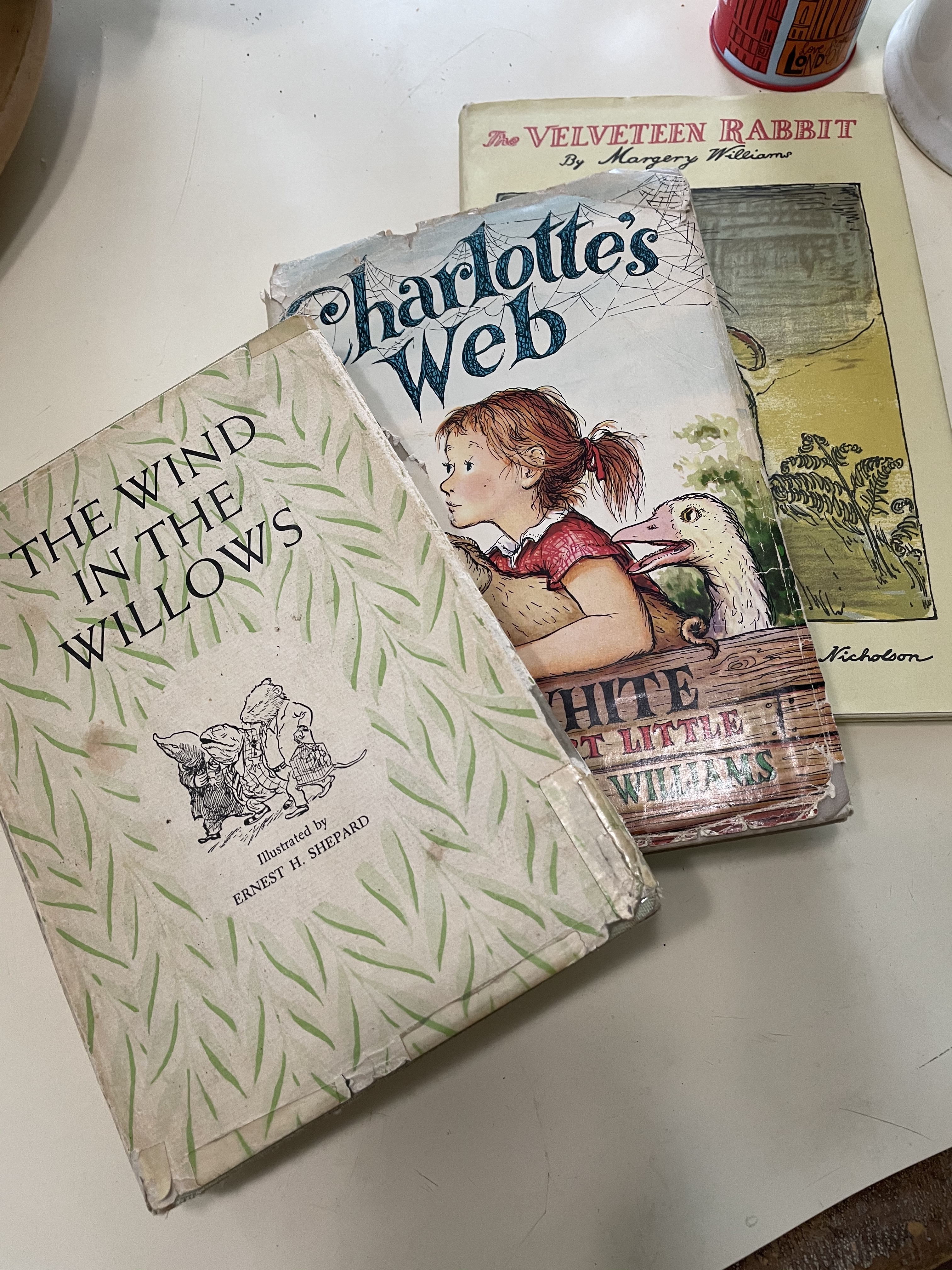
- My inventor-husband cherishes
one, and only one, volume of the family encyclopedia, the one
with the article on scuba diving. The page is taped in
because, as a kid, he 'bout near wore it out. The equipment,
the water, the wonder of it all are still near and dear to his
heart.
- The Wind in the Willows gave
me, in fourth grade, a lasting sense of a cozy home. The Water
Rat's comfy hole, the Mole's underground bungalow, inspired
me, a kid who grew up in a ramshackle structure with iffy
plumbing, fabricated out of my dad's dreams and cinderblocks.
I love home-making and always have.
- I sought out Marguerite de
Angeli's historical stories after a midnight walk with my
friend Michele, an ardent student and history buff, who
remembered them with glowing eyes.
- My younger son cites Amos:
The Story of an Old Dog and His Couch, a book in which
pure silliness, kindliness, and a certain disregard for
traffic rules cause his mom to think the book affected his
developing mind.
I often ask people to name their
favorite book from childhood. The answer is, more often than
not, a description rather than a title. The book, whatever it
was, made an impression before the age of remembering
particulars.
A friend of one of my sons described hers: "A funny book about
manners. I think it rhymed." "Oh," I replied, "Never Tease a
Weasel?" "Yes!" she exclaimed. I happened to own a copy,
and gladly gave it to her.
On an airplane, a sophisticated fellow-traveler to Paris grew
misty-eyed describing a book about a junk man in France. "Oh," I
replied, "The Ragman of Paris?" "Yes," she answered in
some astonishment, especially because the book dates back to
1937. I provided her enough information about book and author to
order herself a copy, and she was glad. 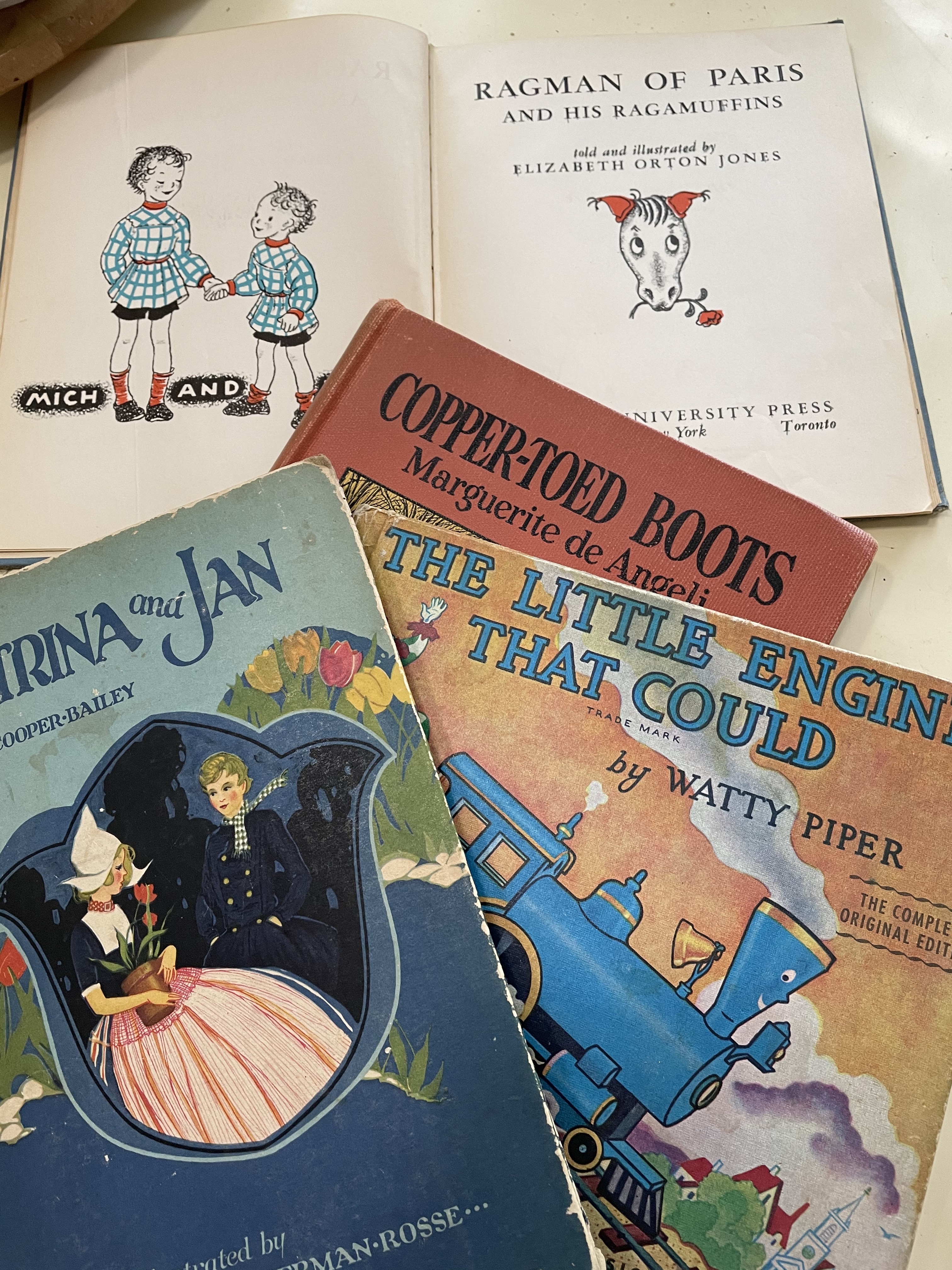
This essay was going to be about
"life-lessons learned from children's books," except even my
eyes glazed over at the title, and at the potential for writing
a trite list of platitudes that would bore even me, the writer.
The potential for the list to be trite is there
because life's fundamentals are the grist for every writer's
mill, and it's difficult to be original on a universal topic.
But consider these examples, none of which are trivial or
superficial:
For
steadfastness? Horton Hatches the Egg. Forgiveness?
Katrina and Jan or The Silver Skates. Perseverance? Of
course, The Little Engine that Could. The value of
individuality? Put Me in the Zoo, a book I cherish to
this day. The heart breaking reality of death, and of
resurrection hope? The Velveteen Rabbit, that powerful
story. Tolerance? The Sneeches, no matter what the
current dialogue about it may say. Christianity in a nutshell? The
Lion, the Witch, and the Wardrobe. That life is difficult
and fraught with peril? Look no further than Peter Rabbit.
Children are keen discerners of
what is true and of what matters. Like their elders, their taste
sometimes runs to junk food and junk literature, but they also
respond to truth. A children's book must get to heart issues
succinctly, and with laser accuracy. Extra verbiage will not be
tolerated or the book that contains it will be soon forgotten.
False sentiment won't resonate, and preachiness annoys this
audience.
Writing poetry is difficult
because each word must be perfect for its place in the poem;
writing for children requires the same care. Writing for
children, done right, is probably more difficult than writing
for their elders.
Most readers have had that
epiphanous experience of meeting their calling, or their hope,
or even their destiny, in the pages of a book. Books,
well-chosen, well-written, change lives. That experience is so
much more likely in a children's book, because children are
impressionable.
My older son called me recently
after his daughter Vera discovered, in the Alphabears
book I'd given him for his first Christmas in 1983, the letter
"V" stood for VERA. She found herself in her dad's book. Because
I love children's books, my hope for every child is that they
discover themselves in the pages of a kindly book. 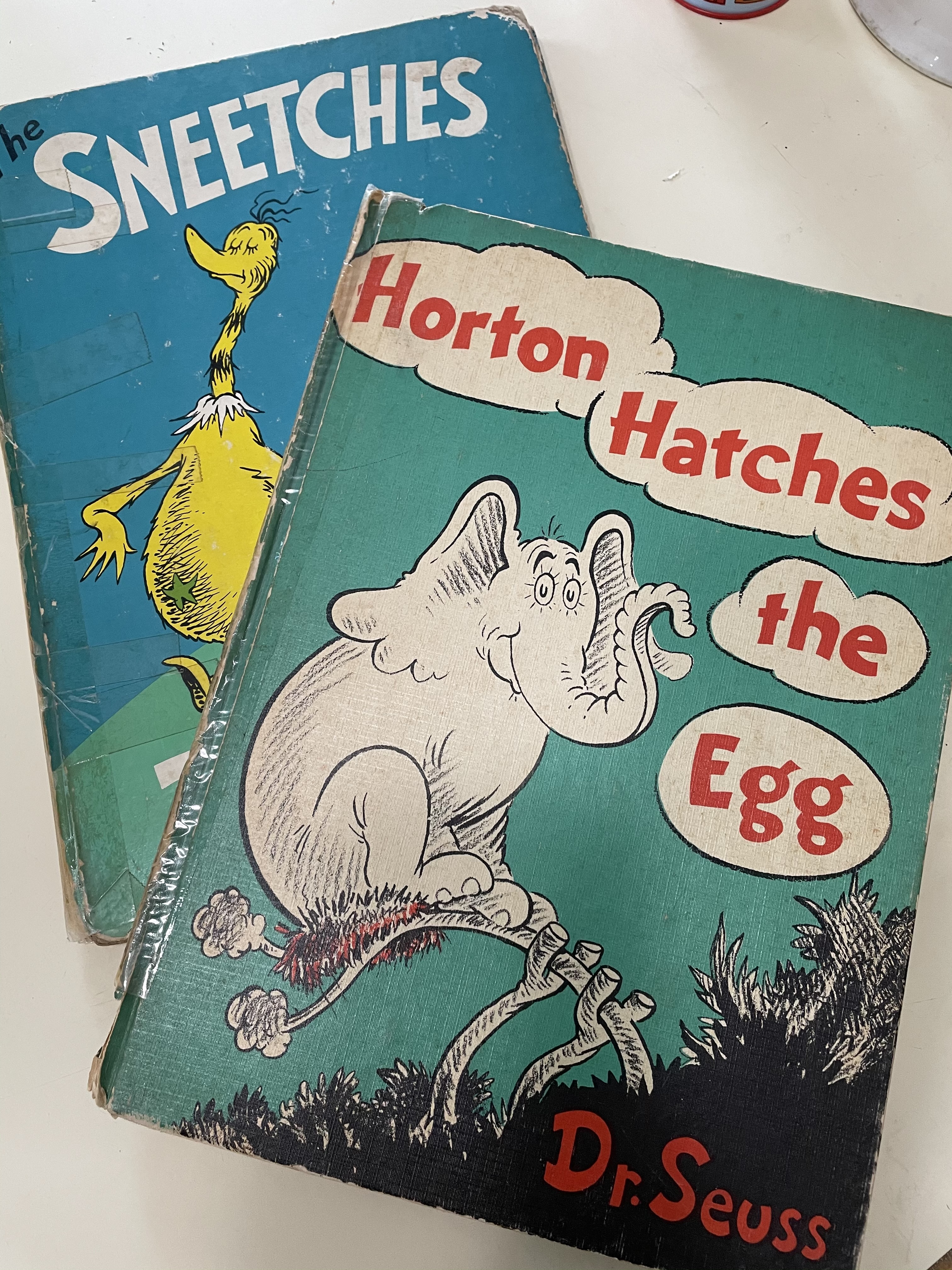
I'd be interested in your
responses to this question: What was your favorite book when you
were growing up?
Thanks, as always, for reading.
_____________________________________
Things you might want to do:
To subscribe to my blog, click here.
You can read other posts here.
To purchase Hugo Makes Bread with Grandad, Peggy
Alberda's heartwarming tale about family bonding and
bread-baking, click here.
(I got to do the illustrations!) 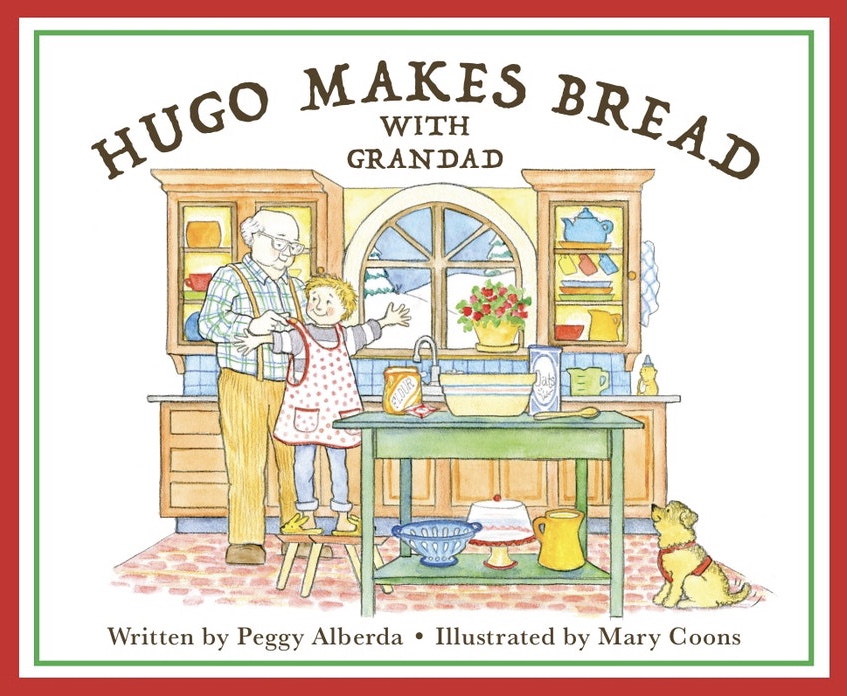
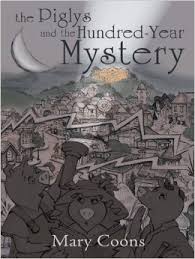 For
my own children's book about history, architecture, and talking
pigs, The Piglys and the Hundred-Year Mystery, click here.
(Aimed at 4th through 6th graders, but appreciated by much
younger readers and by savvy adults who tell me they read it
multiple times.)
For
my own children's book about history, architecture, and talking
pigs, The Piglys and the Hundred-Year Mystery, click here.
(Aimed at 4th through 6th graders, but appreciated by much
younger readers and by savvy adults who tell me they read it
multiple times.)
Both Peggy's book and mine highlight issues I think are
particularly crucial right now.
I'll be at the DASH Homeschool
Expo in Auburn, Indiana, at the Soul's Harbor Assembly of God
church, Saturday April 10th, from 9 to 2.
Would love to see you if you're in the area!




 For
my own children's book about history, architecture, and talking
pigs, The Piglys and the Hundred-Year Mystery, click
For
my own children's book about history, architecture, and talking
pigs, The Piglys and the Hundred-Year Mystery, click